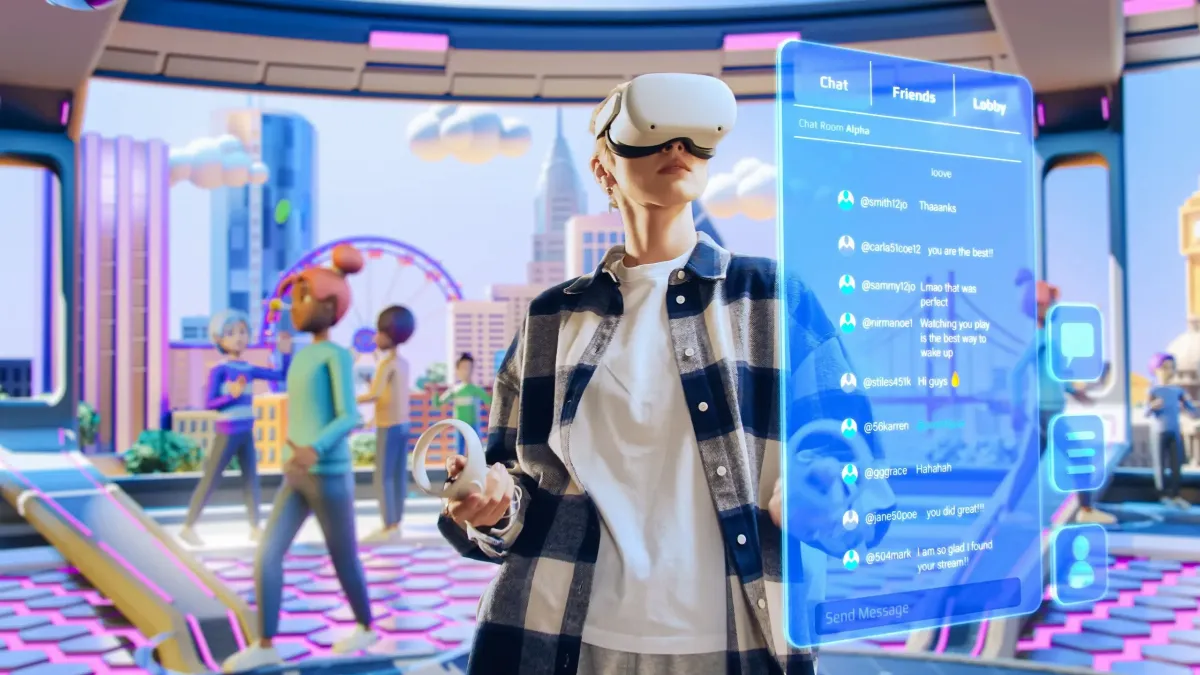
Metaverse
The metaverse is a term used to describe a collective virtual shared space created by the convergence of virtually enhanced physical reality and physically persistent virtual reality. It is a network of 3D virtual worlds focused on social interaction, commerce, and entertainment. The concept of the metaverse was introduced by Neal Stephenson in his 1992 science fiction novel Snow Crash, where it was described as a virtual reality-based successor to the internet. In the current technological landscape, the metaverse refers to platforms and ecosystems where users can interact through digital avatars in virtual environments.
Major technology companies such as Meta (formerly Facebook), Microsoft, and Roblox have made significant investments in building metaverse platforms. These platforms utilize technologies such as virtual reality (VR), augmented reality (AR), blockchain, and digital currencies to enable users to engage in activities ranging from social interaction to virtual economies. In these environments, users can buy, sell, and trade virtual goods, such as virtual real estate, clothing, and non-fungible tokens (NFTs), which represent ownership of digital assets.
The development of the metaverse is tied closely to advancements in VR and AR technology, allowing for immersive experiences where users can attend virtual events, explore virtual worlds, or even participate in virtual workspaces. The metaverse is accessible through VR headsets, AR glasses, or traditional computers and mobile devices. Within the metaverse, users can create and customize their avatars, interact with others in real time, and participate in various digital experiences, including gaming, education, and social events.
Blockchain technology plays a key role in the metaverse, particularly in enabling decentralized platforms. On these platforms, users have more control over their digital assets and can even create and govern their own virtual spaces. Cryptocurrencies, such as Bitcoin and Ethereum, are used in the metaverse to facilitate transactions and ownership of digital items.
The metaverse is still in its early stages of development, but it is gaining attention from both consumers and businesses as a new way to interact and engage with digital content. Companies and individuals can host virtual events, sell virtual goods, and create immersive experiences that are not bound by the limitations of the physical world.
Stichworte
Quellen







